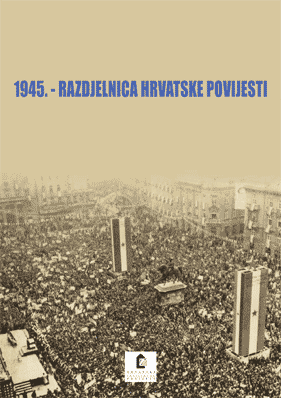Politika kulture, ideologijsko mapiranje , zasjeci
The politics of culture, ideological mapping, cuts
Author(s): Biljana Kašić
Subject(s): Anthropology, Social Sciences, Cultural history, Sociology, Recent History (1900 till today), Cultural Anthropology / Ethnology, Culture and social structure , Sociology of Culture, WW II and following years (1940 - 1949), Post-War period (1950 - 1989)
Published by: Hrvatski institut za povijest
Summary/Abstract: The author analyzes cultural changes that took place during the socialist period in Croatia – in the context of Yugoslavia as it was at the time, especially from 1945 to 1952. In this regard, she attempted to sketch out certain questions and cultural conflicts which were operative in the ideological framework of the time, such as partymindedness, that is to say revolutionary tendencies in culture as the public characteristic of culture. Party-mindedness is demonstrated by execution of the ≪strict dictate of the party line≫; the criteria of truth and progress, or meta-aesthetic criteria, were characterized by ≪specific≫ knowledge, ideology, creativity. The purpose of party-mindedness was not only to bring ideology to its fulfillment, but its partiality was demanded, and the goal of the communist party in power was to implement its muli-layered ideology in practice, or purely in terms of intent. Often the party political principle was incompatible with totalitarian methods. The author thus relied on a few basic points of opposition within Croatian political culture and culture generally. The author looked at three paradigmatic examples: the symbolic structure of South Slav unity, the relationship to tradition, and the orientation to cultural thought in Europe, contained within the metaphorical saying ≪suspicious west≫.
Book: 1945. - Razdjelnica hrvatske povijesti
- Page Range: 123-135
- Page Count: 13
- Publication Year: 2005
- Language: Croatian
- Content File-PDF

